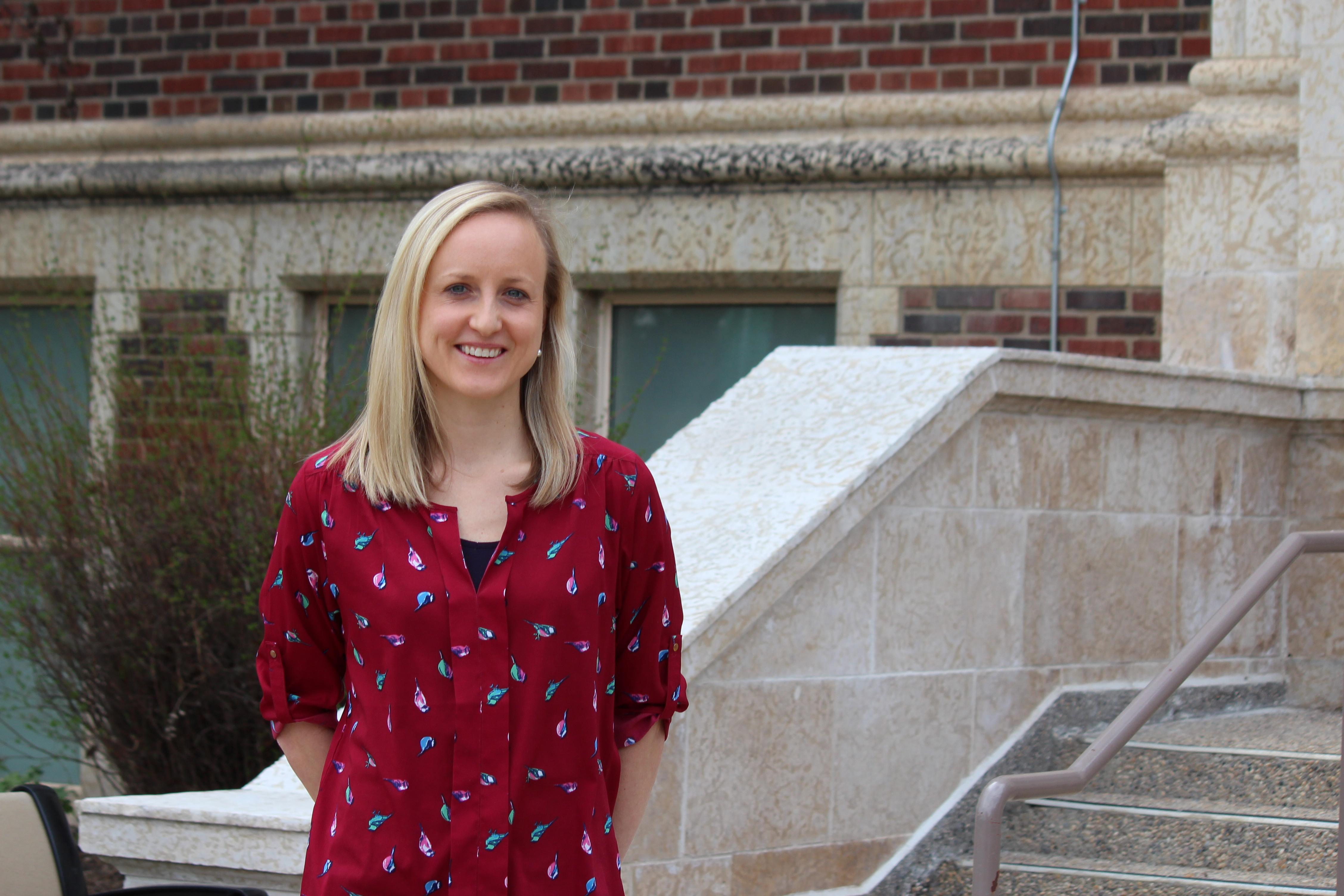
Erin McCabe, PhD student in Rehabilitation Science, is working to improve the care for patients with hemophilia. (Photo: Erica Yeung)
When it comes to hemophilia, people don't commonly think of physical therapy. But a University of Alberta PhD student has made hemophilia rehabilitation her passion and career, earning her national and international recognition.
Erin McCabe, a physical therapist and rehabilitation science PhD student in the Faculty of Rehabilitation Medicine, received a fellowship award from the Canadian Hemophilia Society, and most recently won the Caregiver Award from the Bayer Hemophilia Awards Program.
"The awards allow me to carry out research on a topic that I think is meaningful to patients and healthcare providers," says McCabe. "I'm grateful for the opportunity to connect my work as a physiotherapist with my research, and contribute to improving care for patients with hemophilia."
The Bayer award recognizes the role that health-care professionals have in the care of patients with hemophilia. The award will support Erin's training and the development of tools and services to enhance the field of hemophilia care.
People with hemophilia have a lifelong risk of bleeding into joints and muscles. Over time, this blood damages tissue leading to stiffness and pain, which makes it difficult to do everyday activities. Physiotherapists and patients with hemophilia are partners in monitoring and managing these problems.
McCabe's research focuses on enhancing the therapeutic relationships between patients with hemophilia and physiotherapists. When there are positive relationships, patients are more likely to adhere to treatments and are more closely monitored. Patients may experience less pain and achieve higher levels of physical functioning.
"We have seen better outcomes when there's a good working relationship between patients and physiotherapists, clear communication and the therapist is caring and empathetic," says Doug Gross, a professor in the Department of Physical Therapy and Erin's supervisor.
Jeremy Hall, McCabe's patient, agrees. Hall is a high level hockey player with hemophilia. He believes that health-care providers must be able to consider the patient's needs and desire when making treatment plans.
"Rather than lecturing me on the risks involved with playing hockey as a person with hemophilia, they work with me to develop a treatment plan that allows me to participate in the sport and mediate the risks," explains Hall. "They recognize that hockey is important to me."
"If I did not have a positive and trusting relationship with my health-care team, I would not have their expertise to help me build an adequate treatment plan. I would likely experience a lot more injuries and joint damage."
McCabe began working with patients with hemophilia four years ago. While working as a physiotherapist at the University of Alberta Hospital, she was asked to attend a national conference about hemophilia. Attending the conference cemented Erin's desire to work in hemophilia. She appreciated the partnerships she saw between patients and therapists.
It was her interest in patient-therapist relationships that inspired Erin to enroll in the PhD program in Rehabilitation Science at the Faculty of Rehabilitation Medicine.
"I believe the patient knows more about how hemophilia impacts their bodies," says Erin. "I learn from them and how they manage, and together we can use that information to develop a treatment plan."
McCabe's goal is to develop an assessment tool to measure these therapeutic relationships.
"The idea behind building an assessment tool is to create a foundation to further study what we can do to make the relationship better and to improve outcomes," explains McCabe. "We need a tool to learn what kind of training helps people build better relationships, and what skills physiotherapists need to help improve the relationship."
McCabe continues to work hard balancing her time as a physiotherapist at the Doctor John Akabutu Centre for Bleeding Disorders and as a rehabilitation science doctoral student. After graduating, McCabe hopes to work as a clinician-scientist in the field of hemophilia.
Those who know McCabe best have high hopes for her as a clinician-scientist in hemophilia rehabilitation.
"I think Erin is resourceful and motivated enough that she'll be able to help create and forge the future of physiotherapy clinician scientists," says Gross.